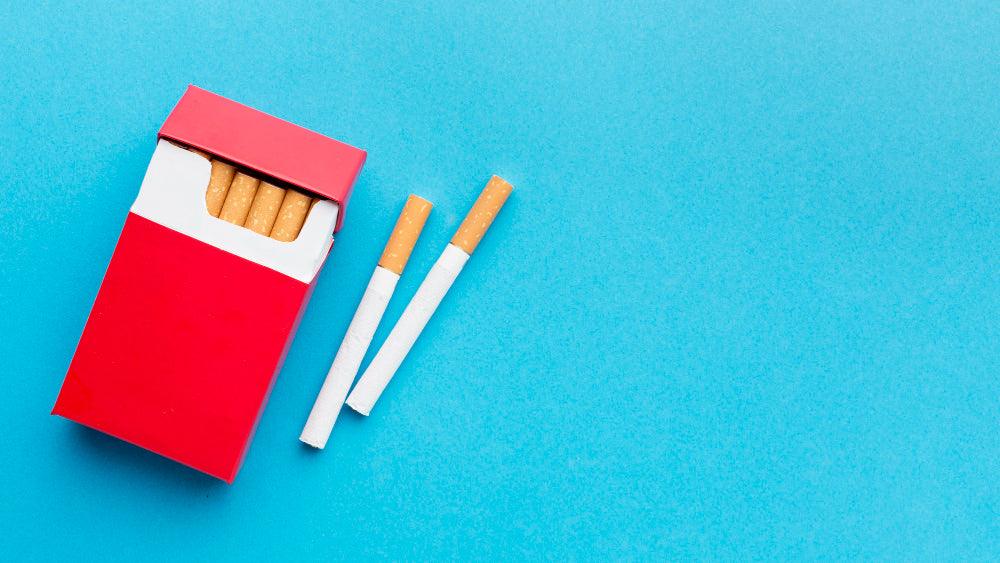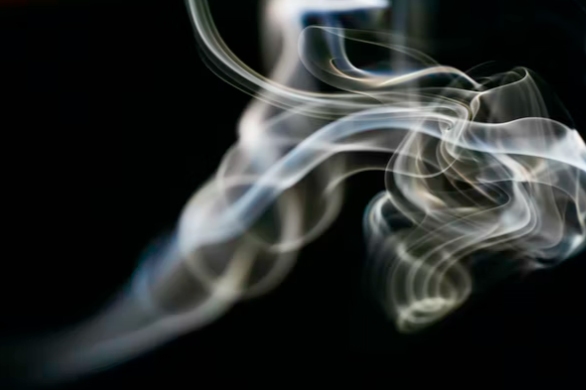What Is A Nicotine Rush?


The equilibrium of substances in your brain is disrupted when nicotine enters your body. You'll then start craving for more once you start smoking since it brings pleasurable effects to you. Dopamine and noradrenaline are two of the molecules primarily impacted by this. These shifts take place in a relatively short amount of time.
When you breathe in nicotine, the chemical quickly travels to your brain's receptors, activates pleasure centres, and begins to have its desired impact. Because of this, many people who smoke do so because they love the rush nicotine provides and because they rely on it.
When you breathe in nicotine, the chemical quickly travels to your brain's receptors, activates pleasure centres, and begins to have its desired impact. Because of this, many people who smoke do so because they love the rush nicotine provides and because they rely on it.
Nicotine is indeed highly addictive. You'll develop a chemical dependency once you take nicotine habitually.
If you continue to smoke, your brain will become increasingly accustomed to nicotine. This indicates that a more significant amount of smoking is required to have the same result.
Your body starts to rely on the consistent doses of nicotine and its effects, which is what we mean when we talk about nicotine addiction. The cessation of nicotine consumption is what brings on the withdrawal symptoms associated with quitting.
The more dependent on nicotine intake a person is, the greater the likelihood they may experience withdrawal symptoms. Being addicted to tobacco gives us good feelings that we become unconscious of the decrease in our oxygen levels, causing a faster heart rate and making us breathe harder.
When we've gotten into the habit of smoking, we feel as if we need to do it to feel "normal," as if we can't get on with our day until we've had a cigarette. This makes us feel as if we're unable to accomplish things without smoking.
As a result, we learn to associate many of our everyday and social activities with our smoking habits to reduce stress, which creates triggers and makes it difficult for us to engage in those activities without lighting up. One example would be smoking while drinking coffee or talking on the phone. Another would be smoking while watching television.
In most cases, a regular smoker is unaware of the mental impacts and other health problems caused by smoking. The pleasurable sensations of calm, reduction of stress, increased attention, and other immediate effects become almost reflexive after a while. This is what's meant by the term "psychological dependence."
Everyone is distinct, and the symptoms can vary greatly depending on various factors, like how long you smoked and how many packs of cigarettes you consumed daily. You may also notice that when you quit smoking and inhale a nicotine product for a certain period, the nicotine head rush seems to be relatively stronger than before.
When you do kick the habit, though, you should anticipate experiencing the following typical bodily problems:
Intense cravings. The craving for nicotine is the indication that will stick with you the longest since it provides you with physical dependence and pleasurable sensations, and it may begin as soon as half an hour or sometimes, only a few minutes after you've finished your last cigarette.
Cough. When nicotine is present in the body, your respiratory system is also unable to do its self-cleaning duties. As your body works through the issue, you will likely experience a cough that could linger for several weeks.
Headaches and dizziness. With most smokers, these nicotine withdrawals are typically on the less severe end of the spectrum, frequently the first to manifest themselves and begin to fade away.
Fatigue. Since nicotine stimulates you, which gives you an energy boost, going without it is likely to make you feel lethargic. On the other hand, you will be restless and may even get sleepless as a result.
Constipation. Another unpleasant side effect that may occur during the first month of treatment is constipation.

When you finally kick the smoking habit and nicotine dependence, you'll almost immediately see positive changes in how your body feels. You'll also notice a weight gain which is a good sign that your nicotine levels are starting to decrease. It would be good to remember that nicotine is water-soluble, so drinking water would help in flushing out traces and making blood flow naturally.
Your body will eliminate all of the harmful carbon monoxide gas in cigarette smoke within a day after you quit smoking. As a consequence of this, the levels of oxygen that are present in your blood will rise, which will make your complexion seem better and provide you with additional energy.
In addition, smoking causes blood arteries to become constricted due to nicotine poisoning, making it difficult for blood to flow through them. As a result, you'll have high blood pressure. If your circulation is inadequate, your fingers and toes will not feel the cold as strongly as they usually would. Other forms of nicotine intake such as vaping also have the same effect as cigarettes, and tobacco, since it also makes the blood vessels less adaptable.
And if you are chewing tobacco, know that it has more nicotine than cigarettes, and there's a bigger possibility of developing nicotine addiction than in other forms.
For a full range of medications, visit our Welzo Online Pharmacy Page. For more details, click here.










Plus get the inside scoop on our latest content and updates in our monthly newsletter.